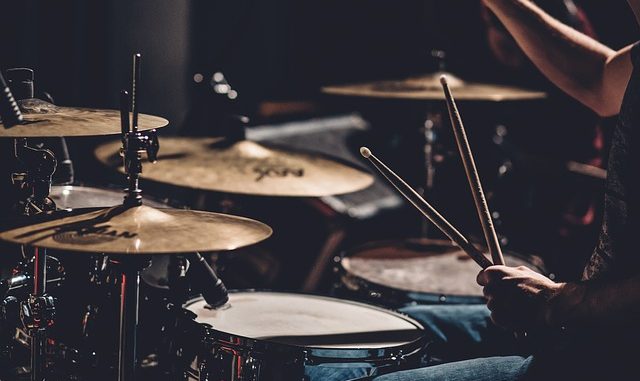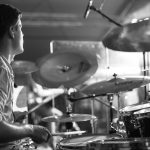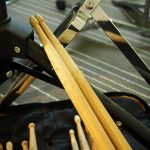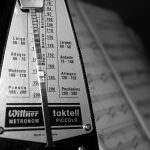
Many people have asked me before “why do drummers play behind glass at concerts?”. It is one of those things that can confuse those who have never worked in live sound, and it certainly looks a bit unusual. It happens a lot at gigs and concerts, but also can be seen in live recordings for bands in studios for instance.
These items are called drum shields or screens and look like a large perspex or glass screen made of panels. They’re actually often made of acrylic So what do they do?
So Why Use a Drum Shield or Screen?
Drum shields stop the loud drums spilling out to where we don’t want them. By this I mean the drums don’t end up doing the following:
- Getting inadvertently picked up on the microphones used for your vocals or other instruments.
- Overpowering the performance by echoing throughout the whole venue.
Drums are loud, there are no two ways about it! Many drummers use mutes to avoid this when it comes to practicing, but live, a drum shield is often the better option. This can improve the sound of the track and even help the rest of the instrumentalists hear each other. Mixing live music is all about control, and the volume can be boosted from the mixing desk if it is too quiet, but it simply can’t be reduced if it is too loud and getting into other mics. This is often called ‘bleed’ or
Drum shields are often hinged and come in different sizes so you can easily move them around, store them and put them around the drum set. As well as reducing the volume of the drums for those around.
Drum shields are a positive option for churches and similarly built venues. A gig venue is built in a different way. If you have a drum set in a church then the likelihood is that there will be a big, booming echo or reverb going around the venue, this can take over any performance and if you want to combine it with organ, piano or other instruments it becomes very tough.
There is some debate about the use of these drum screens. It is similar to the debate around vocals, and whether to record them completely isolated or with the ‘ambience’ of the room. The truth is, the more isolated the sounds, the more control you have from the mixing desk. Most audio engineers will be keen for drummers to use shields and often even combine them with drum rugs and similar absorption materials.






